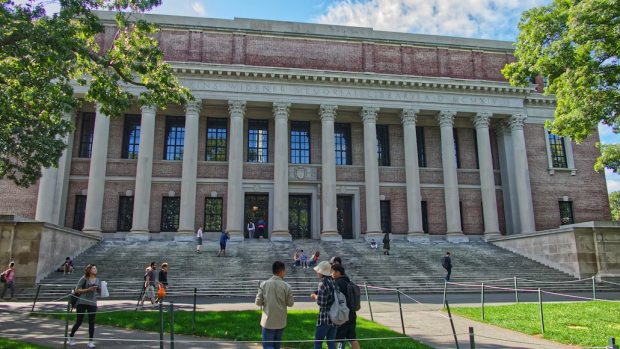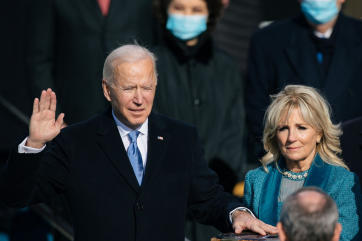In a noteworthy development, the U.S. Education Department has launched a second civil rights investigation into Harvard University, focusing on allegations of shared-ancestry discrimination.
This revelation comes amid a surge in concerns related to potential violations of Title VI of the Civil Rights Act of 1965, a mandate requiring federally funded institutions to safeguard students from discrimination based on race, color, or national origin.

Harvard Under Scrutiny
The genesis of this latest probe lies in a complaint filed by the Muslim Legal Fund of America, asserting that Harvard failed to adequately protect Arab and Muslim students, along with those supporting Palestine, from harassment and threats. This move follows the department's ongoing investigation into Harvard's response to alleged harassment targeting Jewish students. The accusations, if substantiated, could raise questions about the university's commitment to fostering an inclusive and safe environment for students of diverse backgrounds.
Harvard's handling of these incidents has come under scrutiny, with accusations that the university did not effectively address the harassment faced by students. In her critique, Chelsea Glover, a senior staff attorney at the Muslim Legal Fund, condemned Harvard's reaction, claiming officials neglected harassed students and prioritized influential donors.
READ ALSO: Want To Study Like A Harvard Student? Here Are 10 Study Tips And Tricks
Broader Investigations: Rising Antisemitic and Islamophobic Incidents
The Education Department's decision to initiate a second investigation at Harvard is part of a broader trend, with several other institutions added to the list of ongoing investigations. Notably, the University of Michigan, the New School in New York, Indiana University, and the University of South Florida have also come under scrutiny. The department's list encompasses colleges, universities, and K-12 school districts, with investigations initiated based on potential shared-ancestry violations of Title VI.
The urgency surrounding these investigations is amplified by the backdrop of the Israel-Hamas conflict, which triggered a notable rise in antisemitic and Islamophobic incidents on campuses. Since the conflict's onset, the Education Department has opened 44 investigations into potential shared-ancestry violations at educational institutions across the United States.
The details of these investigations remain unspecified beyond the broad umbrella of possible shared-ancestry violations. However, the overarching objective is to evaluate whether federally funded institutions have fulfilled their obligations in creating an inclusive and safe environment for students from diverse backgrounds.
Implications for Universities: Balancing Free Speech and Inclusivity
As the investigations unfold, universities find themselves under increased pressure to address instances of discrimination promptly and transparently. The allegations against Harvard underscore the complex challenges universities face in navigating the delicate balance between protecting free speech and ensuring the safety and well-being of all students.
Title VI of the Civil Rights Act of 1965 plays a pivotal role in ensuring equal protection against discrimination for all students in federally funded institutions. The investigations seek to assess whether these institutions have effectively upheld their responsibilities in fostering inclusive and respectful academic environments.
The outcomes of these investigations hold implications for the future of campus policies and practices related to shared-ancestry discrimination. Universities across the country will be closely watching as the Education Department navigates this intricate terrain, grappling with the challenge of striking a balance that promotes diversity, protects free speech, and ensures the well-being of every student.
Toward a More Inclusive Academic Environment
Harvard's dual investigations underscore the broader imperative for educational institutions to proactively address shared-ancestry discrimination. As the Education Department probes potential violations, universities are compelled to introspect on their mechanisms for fostering inclusivity and responding to incidents of harassment.
The heightened scrutiny on Harvard and other institutions reflects a collective effort to ensure that universities remain bastions of learning that prioritize the well-being and dignity of all students. While the investigations unfold, the academic community eagerly awaits the outcomes, recognizing the potential for these inquiries to reshape campus dynamics and advance the cause of inclusivity in higher education.
RELATED ARTICLE: Harvard Plagiarism Scandal Sparks Campus Culture Clash Over AI-Powered Detection








